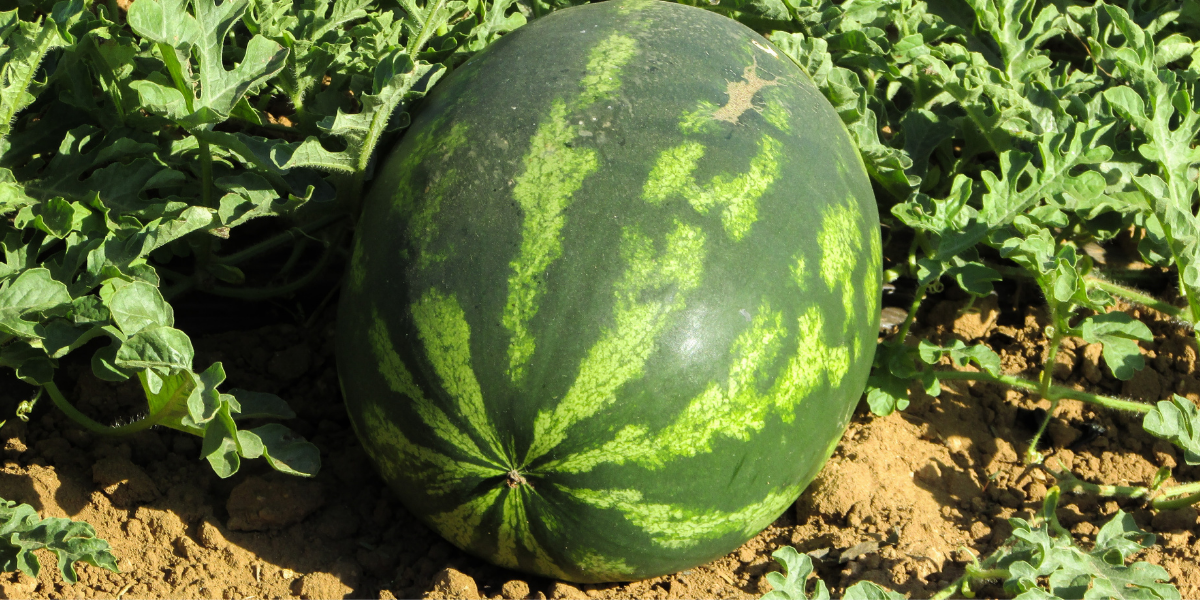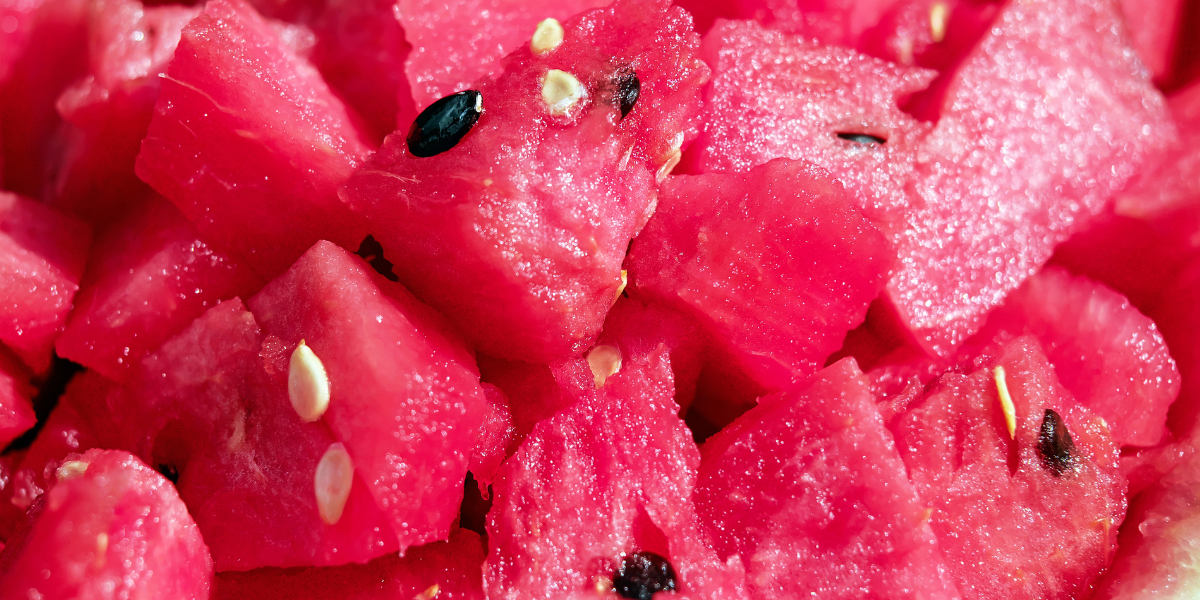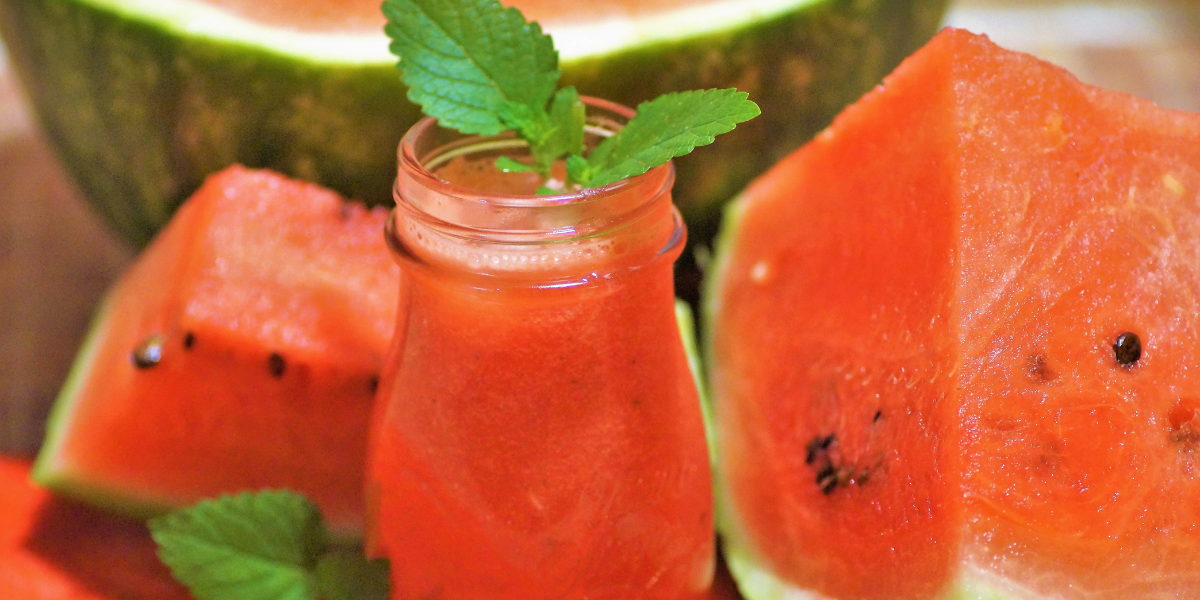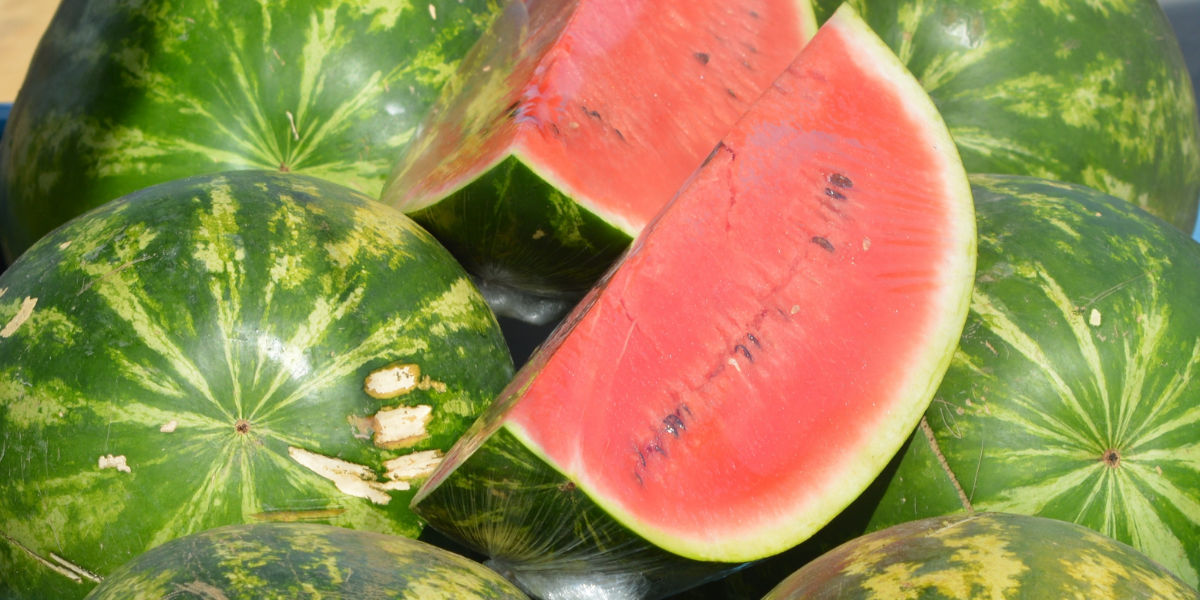In ancient times, watermelon was used as a source of water for tribes travelling through the Kalahari desert. The first evidence of the cultivation of watermelon was when archeologists discovered some 5000-year-old watermelon seeds in northeastern Africa where the drought-tolerant fruit grows wild to this day.

The original watermelon from Africa had a bitter taste but it soon made its way to Egypt where it had undergone some improvement into a sweeter taste. It was here that historical records of watermelon were found in recipe collections, religious records, and medical books dating to 4000 years ago. Apparently, the Egyptians have found certain medicinal benefits to watermelon. Now, is watermelon good for fatty liver?
Watermelon belongs to the Cucurbitaceae plant family along with pumpkin, melon, squash, and cucumber. What makes members of this family unique is that they are monecious, meaning that the same plant bears both male and female flowers.
Nutrition Facts Of Watermelon

Among fruits, watermelon has one of the lowest caloric content at only 46 calories per cup, which is even lower than that of berries, known for being low in sugar.
One cup (154 grams) of watermelon contains beneficial nutrients and plant compounds, like these vitamins and minerals:
- Vitamin A – 18% of the Reference Daily Intake (RDI)
- Vitamins B1, B5, and B6 – 3%of RDI
- Vitamin C – 21%of RDI
- Magnesium – 4%of RDI
- Potassium – 5%of RDI
In addition, watermelon also contains high amounts of carotenoids, such as lycopene and beta-carotene, as well as the amino acids citrulline and arginine.
Benefits Of Eating Watermelon

Aside from having significant amounts of beneficial nutrients and plant compounds, watermelon also has other health benefits such as:
- Good for hydration
- Helps prevent cancer
- Has diuretic properties that aid the kidneys
- Lowers risk of heart attack and stroke
- Improves digestion
- Reduces fat accumulation
- Supports bone health
- Promotes eye health and prevents blindness
- Maintains healthy skin and hair
- Has anti-inflammatory properties
- Helps heal wounds and prevent cell damage
- Provides muscle and nerve support
Fatty Liver Disease
The liver is an important accessory organ of the digestive system as well as the largest gland of the body. It performs various metabolic and secretory functions that are essential for proper digestion, energy storage, and the removal of toxins.
When the liver is not properly taken care of, it can result in the development of liver disease and metabolic problems. One of these conditions is fatty liver disease which occurs when there is excessive storage of fat in the liver.
Fortunately, the liver is able to heal itself most of the time. However, we can help our liver by eating certain beneficial food and drinks and avoiding harmful ones.
Why Is Watermelon Good For Fatty Liver?

Watermelon is good for cleansing the liver. So named for its high water content which is approximately 91%, watermelon is great for detoxification. It also contains certain vitamins, minerals, and amino acids that are essential to health.
Beneficial Contents Of Watermelon For Fatty Liver
-
Citrulline
Watermelon is rich in citrulline, an amino acid that helps the body get rid of ammonia and other toxins which can lead to hepatic encephalopathy, a nervous system disorder caused by chronic and severe liver disease.
When liver function is impaired due to liver disease, it causes toxins to accumulate in the blood. Once the toxins reach the brain, they can affect how it works. People who suffer from hepatic encephalopathy often appear to be confused. Fortunately, this condition is usually reversible so that complete recovery can be achieved.
-
Arginine
Citrulline can be metabolized into arginine, another amino acid that plays an important role in the synthesis of nitric oxide.
The Journal of Nutrition published a study indicating that watermelon was able to significantly increase levels of arginine. Arginine helps produce nitric oxide which, in turn, causes blood vessels to dilate and enhance blood flow throughout the body, including the liver and other organs.
-
Potassium
Potassium is an essential mineral for proper nerve and muscle function. Therefore, it is also very important in ensuring that our liver works properly.
Low potassium levels in the blood have been directly associated with nonalcoholic fatty liver disease (NAFLD) and its accompanying metabolic disorders. When our body lacks potassium, it can also lead to muscle cramps which is another problem with liver disease. However, taking daily potassium supplements in excess of 100 mEq can also cause stomach discomfort, nausea, and diarrhea.
Lycopene is a carotenoid that has powerful anti-inflammatory and antioxidant properties and plays a major role in the protection of the liver.
Watermelon, along with tomatoes, is one of the highest sources of lycopene. However, unlike tomatoes, lycopene from fresh watermelon is better absorbed by the body.
-
Vitamin C
Vitamin C is an essential micronutrient that serves both as an antioxidant and immune system enhancer. It is also essential for maintaining the body’s normal metabolic functions.
Antioxidants help control free radicals that cause inflammation and help protect cells from oxidative stress. Vitamin C also strengthens the immune system to help fight chronic diseases such as fatty liver.
Other Fruits That Are Good For Fatty Liver
All fruits are healthy to eat especially if you are trying to reverse NAFLD. However, some of them are especially beneficial. Ideally, these fruits should contain the lowest amount of carbs per 100 grams. Aside from watermelon, the other fruits that are also good for fatty liver include:
- Avocado
- Lemons and limes
- Strawberries
- Raspberries
- Blackberries
- Cranberries
- Apricots
- Kiwis
- Guavas
- Rhubarb
Berries are popular choices due to their low sugar and carb content. Just to be clear, we are talking about fresh fruits here. Dried fruits are another story because they have a very high amount of carbs and tend to have extra sugar added. Moreover, dried fruits are very sweet and have lost most of the benefits gained from their fresh counterparts.
In A Nutshell

Surprisingly enough, watermelon is one of the most beneficial fruits for healing the body. Aside from being a delicious low-calorie treat, it is also incredibly hydrating and contains other important nutrients that are necessary to the body. The health benefits of watermelon practically cover everything from head to foot. So go ahead and indulge in a refreshing slice of watermelon as part of your diet regimen.

